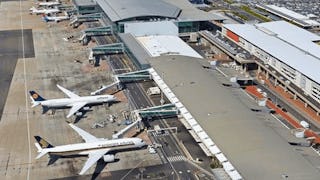View the course trailer: https://www.youtube.com/watch?v=EimqY7-0yRs&t=33s
How can the traffic collapse of the global multimillion cities be prevented? One way out could lead upwards: Urban air transport. By 2030, it is estimated that around 60 percent of humanity will live in cities. If it is possible to shift some of the traffic from the roads to the air, researchers believe this could help to further ensure the basic human need for mobility. But there are still some technical, social, and legal preconditions to be met. The course gives a first introduction to the relatively new field of Urban Air Mobility, explaining the technical background as well as giving an overview of all other necessities such as air traffic management, public acceptance, and ecological sustainability. This course is primarily aimed at master's students and PhD candidates and young professionals interested in exploring new fields in aerospace.
























